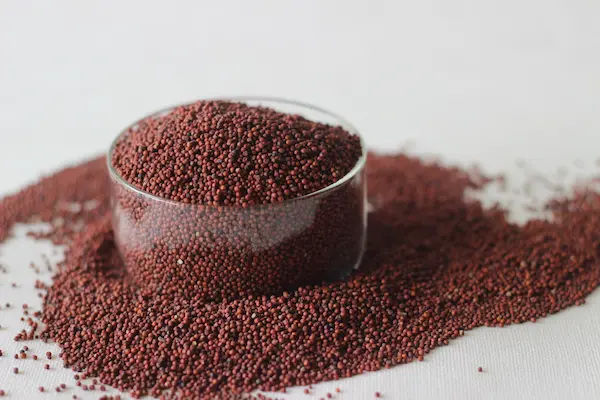Hemochromatosis Causes, Symptoms, and Treatment Options
Know about hemochromatosis, causes, symptoms, diagnosis and treatment options. Learn how to deal with it and more.

Written by Dr. Siri Nallapu
Reviewed by Dr. Shaik Abdul Kalam MD (Physician)
Last updated on 13th Jan, 2026

Introduction
Hemochromatosis is a condition where your body stores too much iron. While iron is essential for good health, excess iron can damage organs like the liver, heart, and pancreas. If left untreated, it can lead to serious health problems. The good news is that early diagnosis and treatment can help manage the condition effectively.
In this article, we’ll discuss what hemochromatosis is, its causes, symptoms, and treatment options. We’ll also share some lifestyle tips to help you stay healthy.
What is Hemochromatosis?
Hemochromatosis is a genetic disorder that causes your body to absorb too much iron from food. Normally, your body regulates iron absorption, but in hemochromatosis, this balance is disrupted. Over time, the extra iron builds up in organs and tissues, leading to damage.
There are two main types:
1. Primary (Hereditary) Hemochromatosis – This is the most common type and is caused by a genetic mutation (usually in the HFE gene). It is inherited from parents.
2. Secondary Hemochromatosis – This occurs due to other medical conditions (like anaemia or chronic liver disease) or frequent blood transfusions.
Consult General Practitioner for Personalised Advice
What Causes Hemochromatosis?
The main cause of hemochromatosis is a genetic mutation that affects how your body absorbs iron. If both parents carry the faulty gene, their child has a higher chance of developing the condition.
Other causes include:
• Chronic liver diseases (such as hepatitis or alcoholism)
• Blood disorders (like thalassemia or sickle cell anaemia)
• Frequent blood transfusions (common in people with certain blood disorders)
Symptoms of Hemochromatosis
Early symptoms of hemochromatosis are often mild and can be mistaken for other conditions. Common signs include:
• Fatigue and weakness
• Joint pain (especially in hands and knees)
• Abdominal pain
• Unexplained weight loss
• Darkening of the skin (bronze or greyish tint)
As the condition progresses, it can lead to more serious complications like:
• Liver disease (cirrhosis, liver failure, or liver cancer)
• Diabetes (due to pancreas damage)
• Heart problems (irregular heartbeat or heart failure)
• Hormonal imbalances (low sex drive, early menopause, or impotence)
How is Hemochromatosis Diagnosed?
If you experience symptoms or have a family history of hemochromatosis, your doctor may recommend:
1. Blood Tests – To check iron levels (serum ferritin and transferrin saturation).
2. Genetic Testing – To confirm hereditary hemochromatosis.
3. Liver Biopsy – In some cases, to check for iron buildup and liver damage.
4. MRI Scan – To assess iron levels in organs like the liver and heart.
Treatment Options for Hemochromatosis
The main goal of treatment is to reduce iron levels in the body. Common treatments include:
1. Phlebotomy (Blood Removal)
• The most common treatment, similar to donating blood.
• Regular sessions remove excess iron from the body.
• Initially, you may need frequent sessions (weekly or monthly), followed by maintenance therapy.
2. Iron Chelation Therapy
• Used if phlebotomy isn’t an option (e.g., in severe anaemia).
• Medications (like deferoxamine) help remove excess iron through urine.
3. Dietary Changes
• Avoid iron-rich foods (red meat, liver, iron-fortified cereals).
• Limit vitamin C (increases iron absorption).
• Avoid alcohol (can worsen liver damage).
• Drink tea or coffee with meals (they reduce iron absorption).
4. Managing Complications
• If hemochromatosis has caused diabetes, heart disease, or liver damage, additional treatments will be needed.
Lifestyle Tips for Managing Hemochromatosis
Making small lifestyle changes can help manage symptoms and prevent complications:
• Eat a Balanced Diet – Focus on whole grains, vegetables, and lean proteins while avoiding excess iron.
• Stay Hydrated – Helps flush out excess iron.
• Exercise Regularly – Supports overall health, but avoid excessive workouts if you have joint pain.
• Avoid Iron Supplements – Unless prescribed by a doctor.
• Get Regular Check-ups – Monitor iron levels and organ function.
When to See a Doctor?
If you experience persistent fatigue, joint pain, or other symptoms of hemochromatosis, especially if you have a family history, consult a doctor. Early treatment can prevent serious complications.
Final Thoughts
Hemochromatosis is a manageable condition if detected early. With proper treatment and lifestyle adjustments, most people can lead a healthy life. If you suspect you may have this condition, don’t hesitate to seek medical advice.
Consult General Practitioner for Personalised Advice
Consult General Practitioner for Personalised Advice

Dr Syed Mateen Pasha
General Physician
2 Years • MBBS
Bengaluru
PRESTIGE SHANTHINIKETAN - SOCIETY CLINIC, Bengaluru

Dr. Vivek D
General Physician
4 Years • MBBS
Bengaluru
PRESTIGE SHANTHINIKETAN - SOCIETY CLINIC, Bengaluru

Dr. Syed Ismail Ali
General Practitioner
7 Years • MBBS
Hyderabad
Apollo 24|7 Clinic, Hyderabad

Dr. Madhuri Sai Sreepada
General Practitioner
9 Years • MBBS
Hyderabad
BRIGHT SMILES MEDICARE & DENTAL CARE, Hyderabad

Dr. Johnson. S
General Practitioner
7 Years • MBBS MD(Preventive and social Medicine)
Pune
Apollo Clinic, Nigdi, Pune
Consult General Practitioner for Personalised Advice

Dr Syed Mateen Pasha
General Physician
2 Years • MBBS
Bengaluru
PRESTIGE SHANTHINIKETAN - SOCIETY CLINIC, Bengaluru

Dr. Vivek D
General Physician
4 Years • MBBS
Bengaluru
PRESTIGE SHANTHINIKETAN - SOCIETY CLINIC, Bengaluru

Dr. Syed Ismail Ali
General Practitioner
7 Years • MBBS
Hyderabad
Apollo 24|7 Clinic, Hyderabad

Dr. Madhuri Sai Sreepada
General Practitioner
9 Years • MBBS
Hyderabad
BRIGHT SMILES MEDICARE & DENTAL CARE, Hyderabad

Dr. Johnson. S
General Practitioner
7 Years • MBBS MD(Preventive and social Medicine)
Pune
Apollo Clinic, Nigdi, Pune




